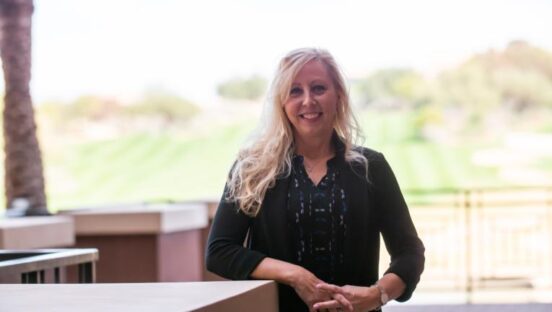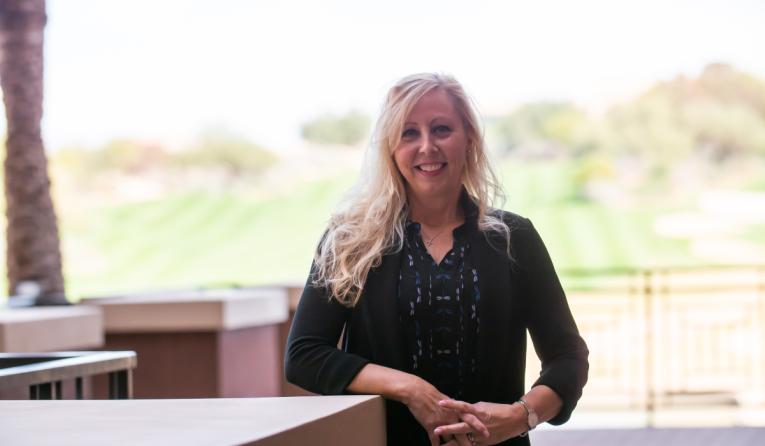Before the pandemic, day-to-day operations of the supply chain were somewhat of a mystery. However, when the world suddenly found itself barren of toilet paper, people began to open their eyes to the importance of not just the supply chain, but the dedicated people working behind it.
“All of a sudden supply chain is front and center […] it’s almost like the world woke up and found a whole new appreciation for what we do,” says Anissa Mandell Chance, senior vice president of supply chain at Focus Brands. “We always knew how delicate the supply chain was, and how all the dots have to connect to a line perfectly, but now the world knows.”
Chance has been with Focus Brands for 11 years, heading the entire supply chain function for a multi-branded platform company. Focus Brands is somewhat unique in the sense that it has seven diverse brands in its portfolio: Auntie Anne’s, Carvel, Cinnabon, Jamba, McAlister’s Deli, Moe’s Southwest Grill, and Schlotzsky’s.
In an interview with FSR editor/QSR senior editor Callie Evergreen at the IFMA 2022 President’s Conference in Scottsdale, Arizona, Chance touched on the benefits of investing in technology for the supply chain.
“The biggest investment in supply chain that we’ll make in the next couple of years is technology,” Chance says. “And if you want to scale, it’s going to be very difficult to do that with human capital. You need that technology to improve the way you’re able to look at data and actually use it.”
Bringing back internal roles that were previously outsourced and making investing in technology a priority marked a shift in the attitude regarding the supply chain. The pandemic left the inflationary environment at an all-time high—but Chance credits the above factors, as well as new acquisitions of talented experts, to the success of Focus Brands both in and out of the pandemic.
“We should be proud of what we’ve done,” says Chance. “It’s not perfect, never will be. There’s no such thing, but it’s better every single day. The goal is [figuring out] what we can do today that will help improve tomorrow.”
Moreover, Chance believes that opening the floor for conversations around the supply chain is a transformational and powerful turn of events. In her experience, supply chain has always been somewhat of an unpopular subject, but that is changing. Now more than ever, there is an increased drive to “build highways that franchisees can drive on.”
“This investment in technology was imperative not just to be able to have this massive data lake, but also to help give us visibility to key points of our supply chain,” comments Chance. “So, the more you understand upstream, what the challenges are in your supply chain […] the better you respond to that. It becomes so much more proactive than reactive.”
In a society that is rapidly changing, Chance has had her finger on the pulse of what consumers want out of a company. The newer generations are demanding greater visibility and accountability—something the industry has never had to focus on before. For Chance, this means a company (and supply chain) should strive for scalability and sustainability.
“For us, being able to put things together that we know are keeping sustainability top of mind is important,” Chance says. “We’ll be able to categorize sustainability initiatives and provide metrics, and that’s something we’ve never been able to do.”
“Being able to tie that into our contract management platform creates visibility but also accountability,” she adds. “If you can’t measure something, how are you going to be able to monitor it?”
As demands change, so does the restaurant industry, and Chance has seen monumental shifts. There are more collaborative discussions between departments, brands are becoming more methodical and thoughtful about promotions, and there has been a shift away from the traditional “promote, promote, promote” approach.
Chance recalls a time of regular menus and promotional menus that changed every 60 days, compounding complexity upon complexity. There was no communication between departments; it was a shot in the dark every time, which put stress on the franchisees, supply chain, and customers.
“The industry is saying, ‘I want to focus more on delivering and executing service, not creating complexity that 90 percent of our customer’s don’t care about,” Chance says. “That, for our industry, is monumental. It’s a complete shift in how we do our business. We’re monitoring, measuring, testing before we go to market […] more and more companies are doing that, and it’s the right thing to do.”
In all, Chance believes the pandemic ended up changing the conversations around the supply chain in a good way; it made investments in people and technology, as well as collaborations, top priority. It gave issues that were previously underserved a new light.
For Focus Brands, a streamlined supply chain across all brands will make new acquisitions easy.
“This is the next generation for Focus Brands,” Chance remarks. “I really think that the next five years, coupled with the supply chain, is going to transform how we do business […] and how we’re able to add more brands into our portfolio seamlessly and successfully.”









